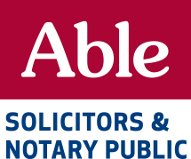Divorce-v-Legal Separation
Divorce-v-Legal Separation
Divorce means what it says: the marriage is over and both parties are free to remarry. In order to divorce a couple must have been living apart for four out of the last five years.
Separation means that parties are living apart, but are not free to remarry. All the associated issues such as asset division, custody of and access to children, and spousal and child maintenance are dealt with in a formal legally-binding separation agreement or by way of orders of the court in judicial separation proceedings. Generally speaking judicial separation proceedings are only commenced if the parties cannot agree terms or if court orders are required to provide for pension entitlements.
Division of Couples Assets
At the time of separation the Court looks at the totality of the assets held by both parties in order to decide the fair and equitable division of these.
Assets comprise all the worldly goods owned by the couple collectively or individually and including the family home, family business or farm, professional practice, any vacation or investment properties, share portfolios, pensions/pension funds/ PRSA/, life insurance-linked investments, SSIAs, racehorses etc. It is all in the collective pot.
Provision for the care and needs of any dependent children is the Court’s first priority and after that the welfare of the separating spouses is assessed depending on their respective financial needs and means.
Pension Rights
Pension rights may be a significant asset in judicial separation or divorce proceedings. It is important that both people involved understand the value of pension benefits.
Disclosure of property and income
If separation/divorce proceedings have been issued, each spouse is required to give particulars of his/her property and income to the other spouse. This would include rights under a pension scheme. The only pension rights which may be taken into account on divorce or separation are those which accumulated during the marriage.
Current legislation gives the Courts power to direct the trustees of a pension scheme to pay benefits in accordance with a Court order.
What are pension benefits?
Anything earned under any type of scheme or arrangement. This would include benefits arising from membership of a company pension scheme or a personal pension policy.
Generally, there are two main types of pension schemes: Defined benefit & Defined Contribution
Benefits payable under the Social Welfare Acts and disability benefits arising under an insured income continuance policy are not pension benefits in the context of the legislation.
For the purposes of the legislation, pension benefits must fall under one or other of the following two headings: Retirement Benefits & Contingent Benefits
Pension Adjustment Orders
Where the Court decides to make a pension adjustment order, it can make two types. Both require that the order is served on the Trustees of the relevant pension scheme(s).
Pension adjustment order – retirement benefits
An order in relation retirements may be made in favour of either the dependent spouse or a person (e.g. a grandparent) for the benefit of a dependent child.
Pension adjustment order – contingent benefits
An order in relation to contingent benefits may be made in favour of the dependent spouse and/or a person for the benefit of a dependent child.
